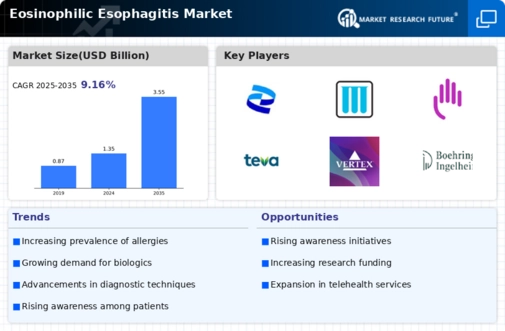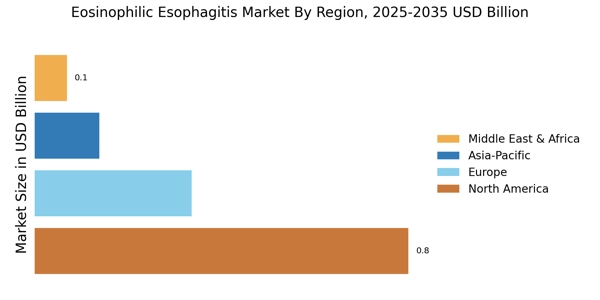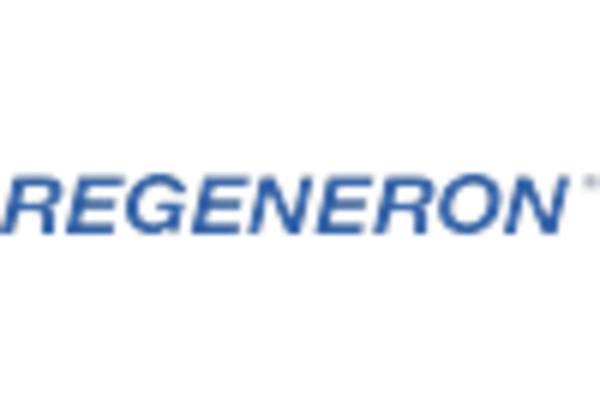Improved Awareness and Education
The growing awareness and education surrounding Eosinophilic Esophagitis are pivotal in shaping the Eosinophilic Esophagitis Market. Healthcare professionals are increasingly recognizing the symptoms and implications of EoE, leading to more accurate diagnoses. Patient education initiatives are also on the rise, empowering individuals to seek medical advice and treatment. This heightened awareness is likely to result in an increase in diagnosed cases, thereby expanding the market. Furthermore, as more patients become informed about their condition, they may advocate for better treatment options, influencing the direction of research and development within the Eosinophilic Esophagitis Market.
Advancements in Treatment Options
Innovations in treatment options for Eosinophilic Esophagitis are significantly influencing the Eosinophilic Esophagitis Market. The development of biologic therapies and novel medications has provided new avenues for managing this condition. For instance, therapies targeting specific inflammatory pathways are emerging, offering hope for patients who do not respond to traditional treatments. The introduction of these advanced therapies is expected to enhance patient outcomes and satisfaction, thereby driving market growth. Additionally, the Eosinophilic Esophagitis Market may witness increased investment from pharmaceutical companies aiming to capitalize on the demand for effective treatments, further stimulating innovation and competition.
Regulatory Support for New Therapies
Regulatory bodies are playing a crucial role in the Eosinophilic Esophagitis Market by facilitating the approval of new therapies. The expedited review processes for innovative treatments are encouraging pharmaceutical companies to invest in EoE research. This regulatory support is essential for bringing new therapies to market more quickly, which is particularly important given the rising prevalence of EoE. As new treatments receive approval, the Eosinophilic Esophagitis Market is expected to experience growth, driven by the availability of effective options for patients. Additionally, favorable regulatory environments may attract more companies to enter the market, further enhancing competition and innovation.
Increased Focus on Personalized Medicine
The shift towards personalized medicine is significantly impacting the Eosinophilic Esophagitis Market. Tailoring treatment plans to individual patient profiles is becoming increasingly feasible due to advancements in genetic and biomarker research. This approach allows for more effective management of EoE, as treatments can be customized based on specific patient needs. The growing emphasis on personalized medicine is likely to drive demand for diagnostic tools and therapies that cater to individual variations in disease presentation. Consequently, the Eosinophilic Esophagitis Market may see a rise in investment and research aimed at developing personalized treatment strategies, enhancing patient outcomes and satisfaction.
Rising Prevalence of Eosinophilic Esophagitis
The increasing incidence of Eosinophilic Esophagitis (EoE) is a primary driver for the Eosinophilic Esophagitis Market. Recent studies indicate that the prevalence of EoE has been rising, particularly among children and young adults. This trend is attributed to various factors, including environmental changes and dietary influences. As awareness of EoE grows, more patients are being diagnosed, leading to a surge in demand for effective treatment options. The Eosinophilic Esophagitis Market is likely to expand as healthcare providers seek to address this growing patient population. Furthermore, the rising prevalence may prompt increased funding for research and development, ultimately enhancing treatment modalities and diagnostic tools.

















